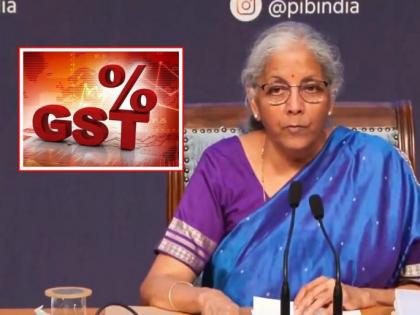GST Overhaul: Council Targets Uniformity, Balances Relief for Middle Class with Luxury Tax Hike
By Lokmat Times Desk | Updated: September 4, 2025 07:26 IST2025-09-04T07:22:22+5:302025-09-04T07:26:20+5:30
The Goods and Services Tax (GST) Council has announced a significant overhaul of the GST structure by scrapping the ...

GST Overhaul: Council Targets Uniformity, Balances Relief for Middle Class with Luxury Tax Hike
The Goods and Services Tax (GST) Council has announced a significant overhaul of the GST structure by scrapping the 12% and 28% slabs. Under the new system, all goods will now fall under either the 5% or 18% slab. The revised GST framework, declared on the first day of the Council meeting, will come into effect from September 22.
Luxury cars, sugary drinks, and fast food are set to become more expensive as taxes on certain products have been raised from 12% to 18%. In addition, luxury items including pan masala, gutkha, and liquor will attract a hefty 40% tax. Finance Minister Nirmala Sitharaman clarified that this move is aimed at bringing more uniformity and simplicity to the GST structure while ensuring higher taxation on luxury and harmful products.
On the relief side, personal and health insurance policies have been exempted from GST, making them more affordable for consumers. The GST on cement has been reduced from 28% to 18%, a step expected to make housing construction cheaper. Many essential medicines, including 33 life-saving drugs such as cancer treatments, have been kept out of the GST net. Smaller cars, motorcycles up to 350cc, and televisions will also see a reduction in tax from 28% to 18%.
Furthermore, staple items such as pizza, bread, milk, and cheese will be exempt from GST. Shoes and clothing priced up to ₹2,500 will now attract only 5% GST. Everyday household goods like shampoo, soap, oil, along with namkeen, pasta, coffee, and noodles will also fall under the 5% category. These revisions are expected to reduce the tax burden on middle-class households while simultaneously increasing levies on luxury consumption.
Open in app